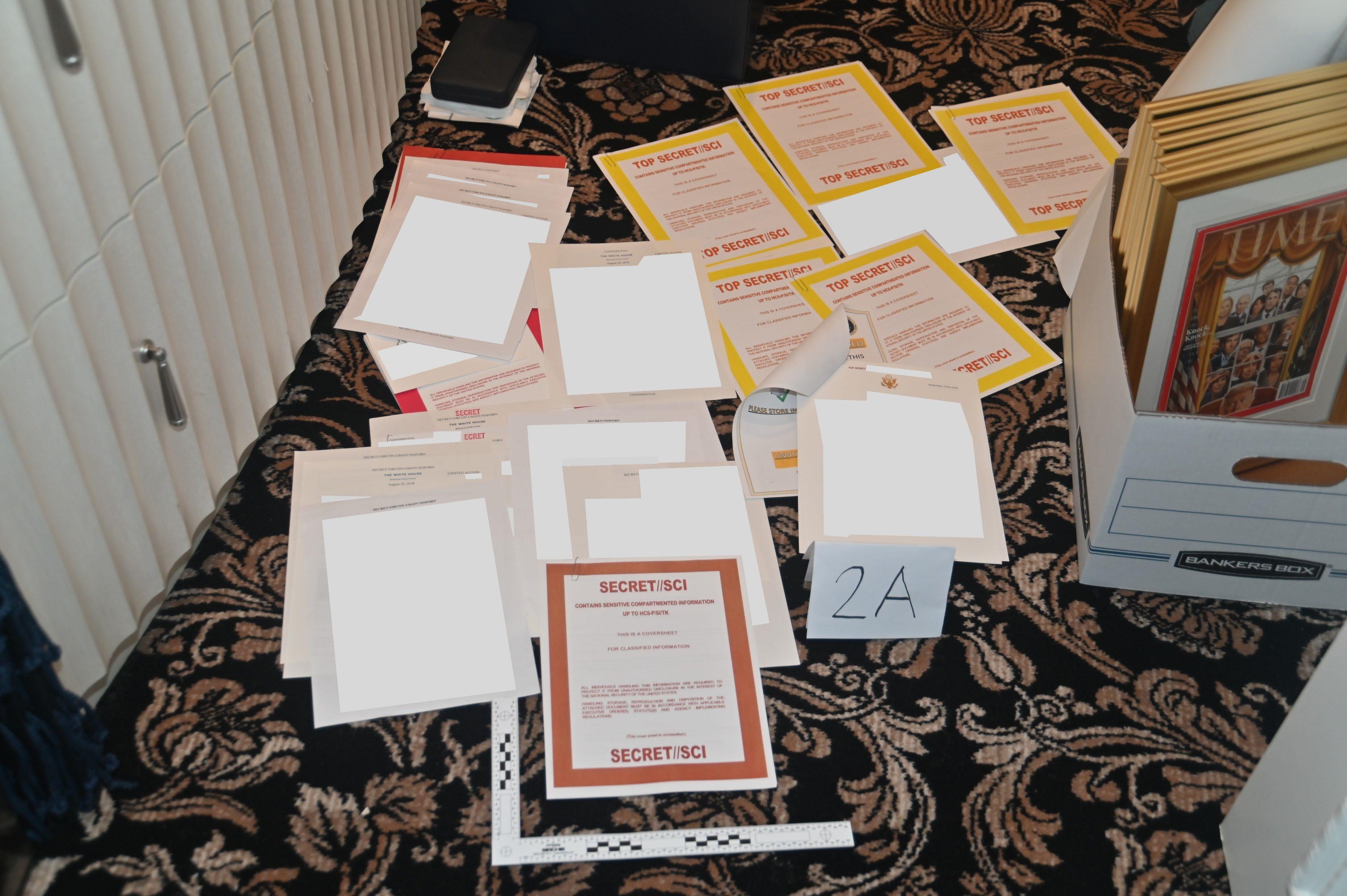|
Classified Information In The United States
The United States government classification system is established under Executive Order 13526, the latest in a long series of executive orders on the topic of classified information beginning in 1951. Issued by President Barack Obama in 2009, Executive Order 13526 replaced earlier executive orders on the topic and modified the regulations codified to 32 C.F.R. 2001. It lays out the system of classification, declassification, and handling of national security information generated by the U.S. government and its employees and contractors, as well as information received from other governments. The desired degree of secrecy about such information is known as its sensitivity. Sensitivity is based upon a calculation of the damage to national security that the release of the information would cause. The United States has three levels of classification: Confidential, Secret, and Top Secret. Each level of classification indicates an increasing degree of sensitivity. Thus, if one holds ... [...More Info...] [...Related Items...] OR: [Wikipedia] [Google] [Baidu] |
Executive Order 13526
Executive Order 13526 was issued on December 29, 2009, by United States President Barack Obama.''Promoting Openness and Accountability by Making Classification a Two-Way Street'' by William H. Leary, Special Adviser to the National Security Advisor and Senior Director for Records and Access Management, National Security Staff, 29 December 2009 It is one of a series of executive orders from US Presidents outlining how |
John Kerry
John Forbes Kerry (born December 11, 1943) is an American attorney, politician, and diplomat who served as the 68th United States secretary of state from 2013 to 2017 in the Presidency of Barack Obama#Administration, administration of Barack Obama. A member of the Forbes family and of the Democratic Party (United States), Democratic Party, he previously represented Massachusetts in the United States Senate from 1985 to 2013 and later served as the first U.S. Special Presidential Envoy for Climate, U.S. special presidential envoy for climate from 2021 to 2024. Kerry was the Democratic nominee for president of the United States in the 2004 United States presidential election, 2004 election, losing to then-incumbent president George W. Bush. Kerry grew up in Massachusetts and Washington, D.C. In 1966, after graduating from Yale University, he enlisted in the United States Naval Reserve, ultimately attaining the rank of lieutenant (navy), lieutenant. During the Vietnam War, Kerr ... [...More Info...] [...Related Items...] OR: [Wikipedia] [Google] [Baidu] |
Need To Know
The term "need to know" (alternatively spelled need-to-know), when used by governments and other organizations (particularly those related to military or intelligence), describes the restriction of data which is considered very confidential and sensitive. Under need-to-know restrictions, even if one has all the necessary official approvals (such as a security clearance) to access certain information, one would not be given access to such information, or read into a clandestine operation, unless one has a specific ''need to know''; that is, access to the information must be necessary for one to conduct one's official duties. This term also includes anyone that the people with the knowledge deemed necessary to share it with. As with most security mechanisms, the aim is to make it difficult for unauthorized access to occur, without inconveniencing legitimate access. Need-to-know also aims to discourage "browsing" of sensitive material by limiting access to the smallest possible n ... [...More Info...] [...Related Items...] OR: [Wikipedia] [Google] [Baidu] |
Defense Counterintelligence And Security Agency
Defense or defence may refer to: Tactical, martial, and political acts or groups * Defense (military), forces primarily intended for warfare * Civil defense, the organizing of civilians to deal with emergencies or enemy attacks * Defense industry, industry which manufactures and sells weapons and military technology * Self-defense, the use of force to defend oneself * Haganah (Hebrew for "The Defence"), a paramilitary organization in British Palestine * National security National security, or national defence (national defense in American English), is the security and Defence (military), defence of a sovereign state, including its Citizenship, citizens, economy, and institutions, which is regarded as a duty of ..., security of a nation state, its citizens, economy, and institutions, as a duty of government ** Defence diplomacy, pursuit of foreign policy objectives through the peaceful employment of defence resources ** Ministry of defence or department of defense, a ... [...More Info...] [...Related Items...] OR: [Wikipedia] [Google] [Baidu] |
Information System
An information system (IS) is a formal, sociotechnical, organizational system designed to collect, process, Information Processing and Management, store, and information distribution, distribute information. From a sociotechnical perspective, information systems comprise four components: task, people, structure (or roles), and technology. Information systems can be defined as an integration of components for collection, storage and data processing, processing of data, comprising digital products that process data to facilitate decision making and the data being used to provide information and contribute to knowledge. A computer information system is a system, which consists of people and computers that process or interpret information. The term is also sometimes used to simply refer to a computer system with software installed. "Information systems" is also an academic field of study about systems with a specific reference to information and the complementary networks of computer ... [...More Info...] [...Related Items...] OR: [Wikipedia] [Google] [Baidu] |
History Of Science
The history of science covers the development of science from ancient history, ancient times to the present. It encompasses all three major branches of science: natural science, natural, social science, social, and formal science, formal. Protoscience, Science in the ancient world, early sciences, and natural philosophies such as alchemy and astrology that existed during the Bronze Age, Iron Age, classical antiquity and the Middle Ages, declined during the early modern period after the establishment of formal disciplines of science in the Age of Enlightenment. The earliest roots of scientific thinking and practice can be traced to Ancient Egypt and Mesopotamia during the 3rd and 2nd millennia BCE. These civilizations' contributions to mathematics, astronomy, and medicine influenced later Greek natural philosophy of Science in classical antiquity, classical antiquity, wherein formal attempts were made to provide explanations of events in the Universe, physical world based on n ... [...More Info...] [...Related Items...] OR: [Wikipedia] [Google] [Baidu] |
Open Source
Open source is source code that is made freely available for possible modification and redistribution. Products include permission to use and view the source code, design documents, or content of the product. The open source model is a decentralized software development model that encourages open collaboration. A main principle of Open-source software, open source software development is peer production, with products such as source code, blueprints, and documentation freely available to the public. The open source movement in software began as a response to the limitations of proprietary code. The model is used for projects such as in open source appropriate technology, and open source drug discovery. Open source promotes universal access via an open-source or free license to a product's design or blueprint, and universal redistribution of that design or blueprint. Before the phrase ''open source'' became widely adopted, developers and producers used a variety of other terms, suc ... [...More Info...] [...Related Items...] OR: [Wikipedia] [Google] [Baidu] |
Privacy
Privacy (, ) is the ability of an individual or group to seclude themselves or information about themselves, and thereby express themselves selectively. The domain of privacy partially overlaps with security, which can include the concepts of appropriate use and Information security, protection of information. Privacy may also take the form of bodily integrity. Throughout history, there have been various conceptions of privacy. Most cultures acknowledge the right of individuals to keep aspects of their personal lives out of the public domain. The right to be free from unauthorized invasions of privacy by governments, corporations, or individuals is enshrined in the privacy laws of many countries and, in some instances, their constitutions. With the rise of technology, the debate regarding privacy has expanded from a bodily sense to include a digital sense. In most countries, the right to digital privacy is considered an extension of the original right to privacy, and many count ... [...More Info...] [...Related Items...] OR: [Wikipedia] [Google] [Baidu] |
Wassenaar Arrangement
The Wassenaar Arrangement on Export Controls for Conventional Arms and Dual-Use Goods and Technologies, also known simply as the Wassenaar Arrangement, is a multilateral export control regime governing the international transfer of conventional arms and dual-use goods and technologies. It was established on 12 July 1996 in Wassenaar, Netherlands as the successor to the Cold War–era Coordinating Committee for Multilateral Export Controls (CoCom), which restricted certain goods to the Eastern Bloc. The Wassenaar Arrangement was established to "contribute to regional and international security and stability by promoting transparency and greater responsibility" among participating states, which coordinate their national policies to ensure certain technologies are not transferred or otherwise diverted to countries that undermine these goals. There are 42 participating states, including many former Comecon (Warsaw Pact) countries such as Russia. A secretariat for administering th ... [...More Info...] [...Related Items...] OR: [Wikipedia] [Google] [Baidu] |
Controlled Unclassified Information
Controlled Unclassified Information (CUI) is a category of unclassified information within the U.S. Federal government. The CUI program was created by President Obama’s Executive Order 13556 to create a streamlined method for information sharing and safeguarding. The Information Security Oversight Office (ISOO) acts as the Executive Agent (EA) of the National Archives and Records Administration (NARA), and is responsible for oversight of the CUI program. The ISOO monitors the implementation of the CUI program by executive branch agencies. CUI will replace agency specific labels such as For Official Use Only (FOUO), Sensitive But Unclassified (SBU), and Law Enforcement Sensitive (LES) on new data and some data with legacy labels will also qualify as Controlled Unclassified Information. Federal contractors who handle CUI will be required to self-assess (or, in some cases, require a government official to review) with the Cybersecurity Maturity Model Certification (CMMC) under the ... [...More Info...] [...Related Items...] OR: [Wikipedia] [Google] [Baidu] |
Information Security Oversight Office (ISOO) 2011 Annual Report To The President
The Information Security Oversight Office (ISOO) is responsible to the President for policy and oversight of the government-wide security classification system and the National Industrial Security Program in the United States. The ISOO is a component of the National Archives and Records Administration (NARA) and receives policy and program guidance from the National Security Council (NSC). History On December 1, 1978, President Jimmy Carter established the Information Security Oversight Office through Executive Order 12065, "National Security Information". ISOO replaced the Interagency Classification Review Committee (ICRC), which had been created by Executive Order 11652 issued by President Richard Nixon in 1972. The ICRC was composed of representatives from the Departments of Defense, Justice and State; the predecessor to the United States Department of Energy, the Atomic Energy Commission, and the CIA. John Eisenhower chaired the ICRC, which met monthly at the White House. ... [...More Info...] [...Related Items...] OR: [Wikipedia] [Google] [Baidu] |
Federation Of American Scientists
The Federation of American Scientists (FAS) is an American nonprofit global policy think tank with the stated intent of using science and scientific analysis to attempt to make the world more secure. FAS was founded in 1945 by a group of scientists, some of whom had previously contributed to the development of nuclear weapons in the Manhattan Project. The Federation of American Scientists states that it aims to reduce the amount of nuclear weapons that are in use, and prevent nuclear and radiological terrorism. It says it aims to present high standards for nuclear energy's safety and security, illuminate government secrecy practices, as well as track and eliminate the global illicit trade of conventional, nuclear, biological and chemical weapons. With 100 sponsors, the Federation of American Scientists says that it promotes a safer and more secure world by developing and advancing solutions to important science and technology security policy problems by educating the public and ... [...More Info...] [...Related Items...] OR: [Wikipedia] [Google] [Baidu] |




